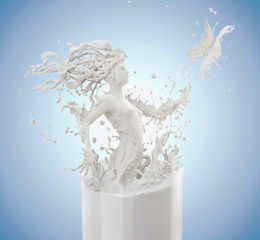Strong bones are vital for good health and great nutrition is vital to strong bones. The reality of the matter is that our bones have a tendency to lose quality as we get older. Yet, even in later years, there is bounty we can do to back off bone loss and maintain a strategic distance from the bone-diminishing illness osteoporosis.
Here are 9 basic approaches to enhance your bone thickness after 50

1) Bone up with calcium:
Calcium is important to maintain your muscle mass. Calcium is the most bounteous mineral in the human body and serves a few essential capacities. Over 99% of aggregate body calcium is put away in bones and teeth. You require adequate calcium to fortify your bones. Great source of calcium are dairy items, like low-fat milk, and fish, such as sardines and salmon. Green leafy vegetables are another decent source of calcium.
2) Don’t smoke:
A few studies have distinguished smoking as a risk factor for osteoporosis and bone fracture. Cigarette smokes produces a tremendous measure of free radicals particles that assault and overpower the body’s normal guards. The outcome is a chain response of harm all through the body including cells, organs, and hormones associated with keeping bones healthy.
 3) Get more vitamin D:
3) Get more vitamin D:
Vitamin D encourages the body to assimilate the calcium. It likewise supports the growth and maintenance of the skeleton. Nourishing sources of vitamin D include some fatty fish, beef liver, and eggs. Bear in mind the sun can likewise be the great source of vitamin D. Small amount of sun exposure can enable your body to fabricate its own vitamin D.
4) Eat prunes:
Dried plums (also known as prunes) generally assist with digestive health, however, they have a bone-health superpower too. Prune consumption can help people suffering from osteoporosis. Scientific research suggests that prunes can reduce total body bone mineral density loss. Prunes contain vitamin K and manganese which are better than average for bone health. As prescribed by experts, 3-5 prunes day by day can truly fortify your bones.
 5) Get more rest:
5) Get more rest:
Lack of sleep can affect bones repair or recovery. A deficient rest influences bone metabolism and bone marrow composition in ways that have implications for improvement, aging, bone health and repair, and blood cell separation. The amount of sleep needed varies by individual. In any case, at least 7 hours of rest for each night is expected to help lessen the physiological and neurobehavioral deficit.
6) Avoid excessive alcohol use:
Drinking excessive amounts of liquor can have damaging effects on bone through its impact on nutrition, disrupting hormonal regulators of bone, and by specifically hindering bone- forming cells. Overwhelming drinking can cause deficits in calcium, magnesium and vitamin D which are essential for skeletal well-being. Also, it can increase the risk of hip and spine fracture.
8) Eat your veggies:
A large portion of the general population thinks dairy when they consider food for bones. Although dairy is a brilliant source of bone-building calcium, green vegetables are the main source of calcium and vitamin K which helps bone health. Vegetables promote bone health by neutralizing blood, which lessens calcium discharge and related bone loss. So eat your veggies!
 9) Pump some iron:
9) Pump some iron:
Iron is a co-factor for the enzymes engaged in collagen synthesis. As indicated by some research, low iron may cause low bone strength. So incorporate iron into your regular diet. Dark green leafy vegetables such as spinach and red meat are an awesome source of iron. However, according to expert advice, if you are taking calcium, don’t take iron at the same time, since calcium supplements may restrain the ingestion of iron.








Join the Discussion
Type out your comment here:
You must be logged in to post a comment.